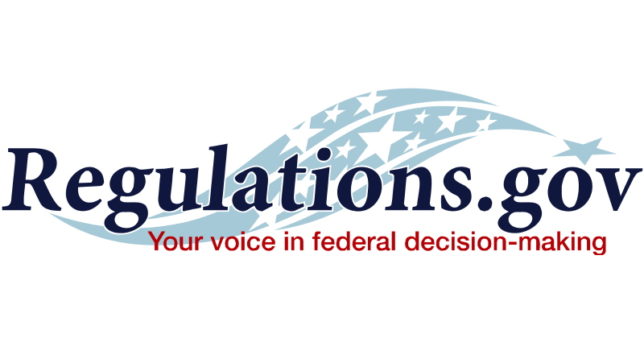Regulation
Protecting Pension Plans from Shareholder Activists


When the federal government wants to issue a new regulation or repeal an old regulation, it is required by law to solicit “public comments” from interested parties. The Capital Research Center (CRC) submitted comments in support of the U.S. Department of Labor’s proposed regulations clarifying the duties owed by Employee Retirement Income Security Act (ERISA) plan fiduciaries, as those duties relate to the exercise of shareholder rights such as proxy voting.
Specifically, CRC wrote in support of new provisions that clearly explain how fiduciaries must act solely in the economic interest of the plans they manage—voting proxies only once they have determined the matter will have an economic impact on the plan—and how that duty extends to cases in which fiduciaries make use of proxy advisory firms.
CRC also wrote to explain how we believe the new regulations will help mitigate harm to pension plan beneficiaries arising from environmental, social policy, and governance (ESG) shareholder activism.
Comments on Department of Labor Proposed Rule RIN 1210-AB91: Fiduciary Duties Regarding Proxy Voting and Shareholder Rights
Dear Sir or Madam,
The Capital Research Center (CRC) appreciates the opportunity to comment on the Department’s proposed rule RIN 1210-AB91: Fiduciary Duties Regarding Proxy Voting and Shareholder Rights. CRC strongly supports the proposed additions to 29 CFR 2550.404a-1 (Investment Duties), which clarify the ways in which the fiduciary duties of ERISA pension fund managers extend to the exercise of shareholder rights such as proxy voting.
CRC provides specific comment in support of the following provisions of proposed section (e) of 29 CFR 2550.404a-1, as well as on how we believe the rule as a whole helps address broader concerns about the impact of activist shareholder resolutions on pension plan beneficiaries.
[2550.404a-1(e)(2)(ii)(A) and (C)]
Proposed subsection (A) requires fiduciaries to act solely in the economic interest of plan beneficiaries, considering only those factors that they determine will affect that interest, during their evaluation and exercise of shareholder rights. Subsection (C) emphasizes that fiduciaries must not compromise investment returns in order to “promote goals unrelated to those financial interests.”
CRC strongly supports this language because, while individual shareholders are free to employ non-economic rationale in deciding how (or if) to vote their shares, plan fiduciaries are in a materially different position. As managers of corporate stock holdings for the benefit of others, their sole concern must be delivering economic benefit to the funds that they manage.
[2550.404a-1(e)(3)(i)-(ii)]
CRC supports this proposed section for similar reasons. These provisions place two clear and commonsense imperatives upon plan fiduciaries: First, fiduciaries must vote their proxies in any matter which they prudently determine would have an economic impact on the plan, after taking costs into consideration. Second, fiduciaries must not vote their proxies unless they have made that determination.
These two provisions, together with the rest of the proposed regulation, provide a clear framework for fund managers to cost-effectively fulfill their fiduciary duties, while at the same time avoid wasting resources on shareholder resolutions that are not relevant to the concerns of plan beneficiaries.
[2550.404a-1(e)(2)(ii)(D)-(E)]
Finally, CRC comments in support of proposed sections 2550.404a-1(e)(2)(ii)(D)-(E). These place an obligation on plan fiduciaries to investigate the basis underlying any proxy vote, and require them to maintain records demonstrating that basis. This duty also extends to instances where fiduciaries rely upon proxy advisory firms, requiring them to ensure that those firms’ recommendations are solely in the economic interest of the plan.
Simply put, CRC agrees with the Department’s view that “fiduciaries must be prepared to articulate the anticipated economic benefit of proxy-vote decisions in the event they decide to vote,”[i] whether or not they make use of proxy advisory firms.
The Impact of ESG Shareholder Activism on Pension Fund Beneficiaries
CRC also comments broadly in support of this proposed regulation because of the way it should help mitigate downstream harm to pension plan beneficiaries arising from environmental, social policy, and governance (ESG) shareholder activism.
ESG shareholder resolutions are activist measures that seek to pressure corporations into adopting policies that align with the shareholder’s socio-political values. These resolutions can mirror ideological debates that play out across the larger American political landscape,[ii] and they are frequently a product of dedicated advocacy groups that may be less concerned with delivering shareholder value than with advancing their particular agenda.[iii] More than 400 ESG resolutions were filed in the 2020 proxy season.[iv]
By way of example, one organization that utilizes shareholder resolutions to advance ESG activism is a 501(c)(3) nonprofit called As You Sow. It filed sixty-two such resolutions in 2019, and seventy-two in 2020.[v] Topics included resolutions related to board diversity, climate change and other environmental issues, political spending, and the agricultural use of antibiotics and pesticides.
CRC agrees with the Department’s view that “[i]t is likely that many of these proposals have little bearing on share value or other relations to plan interests.”[vi] But we suggest that some ESG resolutions can be directly harmful to the targeted corporation’s shareholders (and thus to any pension funds holding stock) through costs associated with responding to the proposal, the diversion of corporate resources away from profit maximization, and deteriorating public relations with consumers and retail investors angered by the corporation’s unnecessary position on a divisive socio-political issue.[vii]
While CRC believes that corporations should principally concern themselves with delivering shareholder value through lawful business operations, we do not argue here that ESG resolutions from activist investors are improper. Instead, and as relevant to this proposed rule, the critical issue lies in the difference between an investor who holds his or her own shares, and one who does so for the benefit of another.
What the rule correctly recognizes is that fund managers are entirely justified in assuming that plan beneficiaries favor value maximization as the touchstone for proxy vote decision-making, but they would be equally unjustified in assuming those same beneficiaries support ESG corporate activism.
CRC feels that the Department’s proposed rule appreciates this reality, and provides meaningful guidance to fiduciaries seeking to fulfill their duty to maximize the value of the assets they manage.
Thank you for your consideration of these comments.
Robert Stilson
Research Specialist
Capital Research Center
Washington, DC
[Notes]
[i] “Fiduciary Duties Regarding Proxy Voting and Shareholder Rights.” U.S. Department of Labor. 85 Fed. Reg. 55224. September 4, 2020. Available at: https://www.govinfo.gov/content/pkg/FR-2020-09-04/pdf/2020-19472.pdf
[ii] See: Danhof, Justin. “The Proxy Voting War is One That the Right Needs to Engage In.” RealClearMarkets. July 10, 2020. Accessed October 2, 2020. Available at: https://www.realclearmarkets.com/articles/2020/07/10/the_proxy_voting_war_is_one_that_the_right_needs_to_engage_in_498593.html
[iii] See: Griffith, Keith. “Why PETA Buys Stock in Companies it Protests.” August 4, 2016. Accessed September 30, 2020. Available at: https://www.thestreet.com/investing/why-peta-buys-stock-in-companies-it-protests-13641714
[iv] Bradford, Hazel. “2020 proxy season includes 400-plus ESG resolutions – report.” March 19, 2020. Accessed October 2, 2020. Available at: https://www.pionline.com/governance/2020-proxy-season-includes-400-plus-esg-resolutions-report
[v] “Current Resolutions.” As You Sow. Accessed October 2, 2020. Available at: https://www.asyousow.org/resolutions-tracker
[vi] “Fiduciary Duties Regarding Proxy Voting and Shareholder Rights.” U.S. Department of Labor. 85 Fed. Reg. 55229. September 4, 2020. Available at: https://www.govinfo.gov/content/pkg/FR-2020-09-04/pdf/2020-19472.pdf
[vii] See: Kalt, Joseph P. and Turki, L. Adel. “Political, Social, and Environmental Shareholder Resolutions: Do They Create or Destroy Shareholder Value?” Commissioned by the National Association of Manufacturers. May 2018. Accessed October 1, 2020. Available at: https://corpgov.law.harvard.edu/wp-content/uploads/2018/06/ESG-Paper-FINAL_reduced-size-002.pdf
Editor’s note: These comments were submitted to the Department of Labor at regulations.gov on October 5, 2020. Except for a few typos in section numbers that have been corrected, this is the exact text submitted to the Department of Labor.



